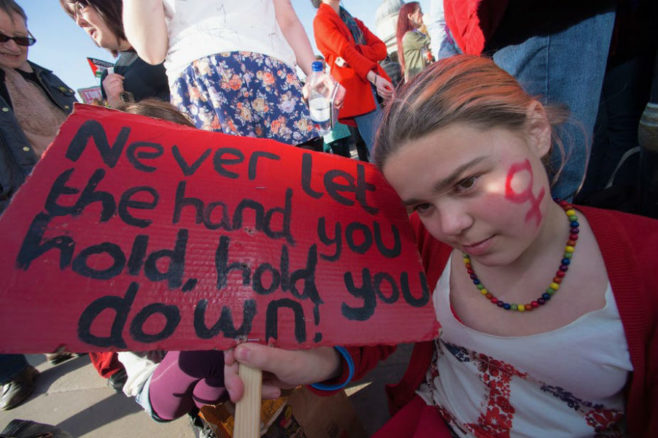(Vancouver, BC) In the #MeToo era, more women are disclosing sexual assaults, but international students who are more likely to be sexually assaulted are less likely to get the support they need.
There were almost 110,00 international students at all levels in Metro Vancouver in 2017. The rate for all post-secondary students experiencing sexual assault is one in five female students and new research confirms that international students reported more sexual assault than domestic students and experience more intense fear, helplessness, and horror after victimization.
International students who identify as women are particularly vulnerable to sexual assault. Some perpetrators of sexual violence see international students as easy targets — too ashamed to report sexual assaults, unaware of where they can get help and influenced by different cultural norms.
Maham Kamal Khanum, an international student from Pakistan who is at UBC, explains that sexual violence is normalized in her home country and that “it was almost a culture shock to learn how unacceptable sexual violence was here.”
Canadian-born college women who chose to disclose a sexual assault tend to turn to their mothers or female peers first, but these options are not readily available to many international students whose mothers are overseas and who don’t have close friends here. So, many may turn to the staff at their schools for support and guidance.
Several international students have told MOSAIC that they received no support or guidance from their schools when they disclosed a sexual assault. For example, a twenty-one-year-old female student told us that after she was assaulted, she didn’t know where to turn. She eventually disclosed the assault to her teacher who didn’t believe her and made her fear that she would be kicked out of school.
Olga Stachova, Chief Executive Officer, said the strong likelihood of international students who have been sexually assaulted to seek support from their educational institutions “puts the onus on them to ensure their staff are prepared to respond appropriately.
“International education is a competitive business and if BC wants to continue to attract large numbers of students, staff at host institutions should be equipped with the knowledge and skills they need to respond effectively to their international, as well as Canadian-born, students who disclose sexual assault. This would not only enhance BC’s reputation as a provider of quality international education but also help reduce the trauma experienced by survivors of sexual assault.”
Several of the larger educational institutions have taken steps to provide appropriate support to international students who have been sexually assaulted. The Fraser International College at Simon Fraser University, for example, incorporates sexual education into the transition curriculum for all new international students.
MOSAIC has found, however, that many of the smaller schools with significant numbers of international students do not have such policies or services in place. To fill that gap, MOSAIC, with funding from the Province of BC, has developed training materials and is offering workshops for staff at post-secondary institutions to build their capacity to respond effectively and appropriately to international students’ disclosure of sexual assault. Staff can register at no cost for these free training sessions at [email protected].
_______________
MOSAIC is an acronym for Multi-lingual Orientation Services Association for Immigrant Communities.
With over 40 programs, MOSAIC provides employment services, family services, language instruction, legal information, settlement services, and victim and family violence services from multiple sites in Metro Vancouver. MOSAIC also operates the WorkBC Centre for Vancouver Northeast catchment area, as well as MOSAIC Translations and Interpretations Services.








